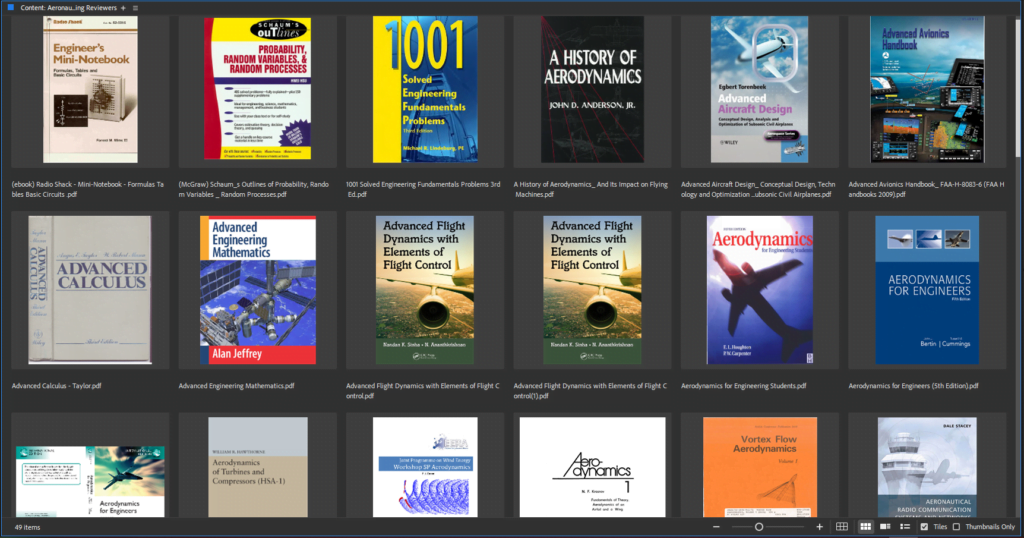
10 Exciting Reasons to Pursue Aeronautical Engineering in 2025
Table of Contents

Introduction to Aeronautical Engineering
Aeronautical Engineering is one of the most fascinating and rapidly evolving fields in the world of technology and innovation. This discipline focuses on the design, development, testing, and production of aircraft, spacecraft, and related systems. With advancements in aviation technology, space exploration, and defense applications, aeronautical engineers play a crucial role in shaping the future of air and space travel.
In this article, we will explore the exciting world of Aeronautical Engineering, its importance, career prospects, required skills, and future trends that make it a highly rewarding profession.
What is Aeronautical Engineering?
Aeronautical Engineering is a specialized branch of aerospace engineering that primarily deals with aircraft development, including airplanes, helicopters, drones, and supersonic jets. Engineers in this field focus on aerodynamics, propulsion systems, materials, structural design, and avionics to create safer and more efficient flying machines.
With continuous advancements in aviation technology, Aeronautical Engineering has become a high-demand profession in both commercial and defense sectors. From designing lightweight aircraft to improving fuel efficiency and safety standards, aeronautical engineers are at the forefront of innovation.
Why Choose Aeronautical Engineering?
1. High Demand and Job Opportunities
The global aviation and aerospace industry is expanding rapidly, leading to a growing demand for skilled aeronautical engineers. With increasing air travel, space exploration missions, and advancements in drone technology, job opportunities in this field are abundant. Companies like Boeing, Airbus, NASA, SpaceX, and defense organizations actively hire aeronautical engineers for various projects.
2. Competitive Salary and Career Growth
Aeronautical Engineering is one of the highest-paying engineering fields. Entry-level engineers can expect competitive salaries, while experienced professionals can earn six-figure incomes, especially in aerospace and defense sectors. With further education and experience, career growth opportunities are vast, leading to roles such as chief engineer, project manager, or aerospace consultant.
3. Innovation and Cutting-Edge Technology
If you have a passion for innovation and technology, Aeronautical Engineering offers the perfect career path. Engineers work on developing next-generation aircraft, eco-friendly propulsion systems, and even futuristic flying cars. The industry continuously evolves, making it an exciting field for tech enthusiasts.
4. Contribution to Space Exploration
Aeronautical engineers contribute significantly to space missions. They design spacecraft, satellites, and propulsion systems for organizations like NASA and SpaceX. With ongoing Mars missions and lunar exploration projects, Aeronautical Engineering plays a crucial role in the advancement of space technology.
5. Work in Multiple Industries
Aeronautical engineers are not limited to working in aviation alone. They can find employment in defense, space research, automobile aerodynamics, UAV (Unmanned Aerial Vehicles) development, and even robotics. The versatility of this profession makes it attractive to engineers seeking diverse career options.
6. Sustainability and Eco-Friendly Aviation
With the aviation industry striving for sustainability, aeronautical engineers play a vital role in reducing carbon emissions. From designing fuel-efficient aircraft to researching electric and hydrogen-powered planes, engineers contribute to making air travel more environmentally friendly.
7. Exciting Research and Development (R&D) Opportunities
Research is a significant part of Aeronautical Engineering. Engineers and scientists work on improving aircraft efficiency, developing supersonic jets, and enhancing flight safety. Cutting-edge R&D projects keep professionals engaged in constant learning and discovery.
8. International Career Prospects
Aeronautical engineers can work globally, with opportunities in the USA, Europe, the Middle East, and Asia. Many countries invest heavily in aerospace industries, offering high-paying jobs and attractive benefits to skilled engineers.
9. Thrilling and Challenging Work Environment
The work of an aeronautical engineer is never monotonous. Every project comes with unique challenges, from designing aircraft capable of extreme speeds to ensuring passenger safety. The field demands problem-solving skills, creativity, and technical expertise, making it one of the most exciting engineering disciplines.
10. A Prestigious and Respected Profession
Being an aeronautical engineer brings prestige and recognition. Engineers in this field contribute to groundbreaking innovations that impact the world. Whether working on commercial aircraft, military jets, or space missions, aeronautical engineers are respected professionals in the industry.
Key Skills Required for Aeronautical Engineering
To succeed in Aeronautical Engineering, one must possess a combination of technical skills, analytical abilities, and creative thinking. Some essential skills include:
- Strong Mathematics and Physics Knowledge – Aerodynamics, fluid mechanics, and thermodynamics are fundamental to this field.
- Proficiency in Engineering Software – CAD (Computer-Aided Design) software, MATLAB, and simulation tools are commonly used.
- Critical Thinking and Problem-Solving – Engineers must troubleshoot and innovate solutions for aircraft design and functionality.
- Attention to Detail – Precision is crucial in aircraft development to ensure safety and efficiency.
- Communication and Teamwork – Engineers collaborate with multidisciplinary teams, requiring effective communication skills.
Educational Path to Become an Aeronautical Engineer
Undergraduate Degree
A Bachelor’s degree in Aeronautical or Aerospace Engineering is the first step. Courses include aerodynamics, propulsion systems, aircraft structures, and flight mechanics.
Postgraduate Specialization
A Master’s degree or Ph.D. allows engineers to specialize in areas such as avionics, space engineering, or computational fluid dynamics (CFD). Advanced education enhances career prospects in research and leadership roles.
Certifications and Licenses
- Professional Engineering (PE) License – Required for higher-level positions and public projects.
- FAA (Federal Aviation Administration) Certifications – Useful for roles in aircraft maintenance and aviation regulations.
Future Trends in Aeronautical Engineering
1. Electric and Hybrid Aircraft
With the push for sustainable aviation, engineers are developing electric and hybrid aircraft that reduce fuel consumption and carbon footprints. Companies like Airbus and Rolls-Royce are investing in green aviation technology.
2. Supersonic and Hypersonic Travel
Future aircraft designs aim for ultra-fast travel, reducing long-haul flight times significantly. Companies like Boom Supersonic are working on commercial supersonic jets.
3. AI and Automation in Aviation
Artificial intelligence (AI) is transforming the aviation industry, from autonomous aircraft to predictive maintenance systems. AI-driven innovations improve flight safety and efficiency.
4. Advancements in Space Travel
With space tourism on the horizon, aeronautical engineers are at the forefront of designing commercial spaceflight vehicles. Companies like Blue Origin and Virgin Galactic are making space travel a reality.
5. Improved Drone and UAV Technology
Drones are revolutionizing industries beyond aviation, including delivery services, surveillance, and disaster response. Aeronautical engineers are developing more efficient and autonomous UAVs.
Conclusion
Aeronautical Engineering is an exciting, challenging, and highly rewarding field that offers numerous career opportunities in aviation, space exploration, and defense industries. With technological advancements, sustainability initiatives, and global expansion, the future of this field looks promising.
If you are passionate about flight, technology, and innovation, Aeronautical Engineering could be the perfect career path for you. Whether designing next-generation aircraft or contributing to space exploration, this field allows engineers to shape the future of aerospace technology.
Are you ready to embark on a thrilling journey in Aeronautical Engineering? The sky is not the limit—it’s just the beginning! 🚀







Add Comment